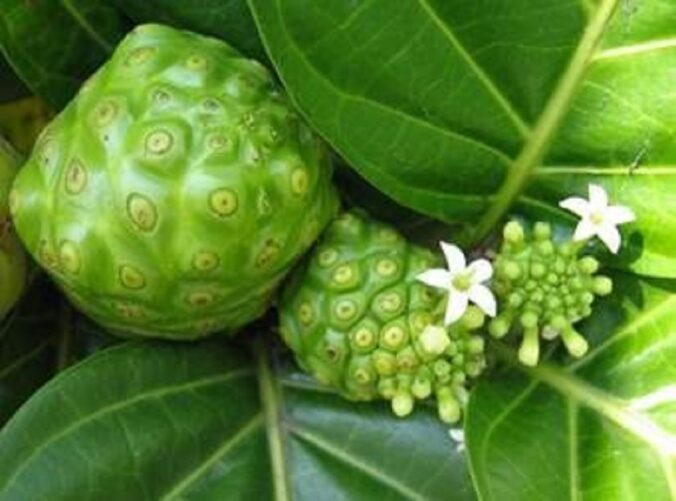Morinda is an herb that has been used for centuries in traditional Chinese medicine. It is derived from the root of the Morinda officinalis plant and is also known as Indian mulberry or noni.
The history of morinda dates back to ancient China, where it was traditionally used to treat a variety of health conditions, including fever, headache, and joint pain. Today, morinda is still widely used in traditional Chinese medicine and is also gaining popularity in the West as a natural remedy for various ailments.
Morinda contains a number of compounds that have potential health benefits. These include antioxidants such as vitamin C, quercetin, and anthocyanins, as well as anti-inflammatory compounds like salicylate and resveratrol. Resveratrol is an antioxidant compound that has been shown to have a number of potential health benefits, including protecting cells from oxidative stress, promoting healthy aging, and supporting cardiovascular health. It may also help to reduce inflammation and support healthy immune function. Resveratrol may interact with various metabolic pathways in the body, such as the endocannabinoid system (ECS) and the nitric oxide (NO) pathway. Vitamin C is an essential nutrient that plays a role in many bodily functions, including immune function, wound healing, and the synthesis of collagen. It may also help to reduce inflammation and protect cells from damage. Vitamin C interacts with various metabolic pathways, such as the immune system and the antioxidant system. Quercetin is a type of flavonoid that has been shown to have potential health benefits, including reducing inflammation, supporting heart health, and promoting healthy aging. It may also help to reduce allergic reactions and support immune function. Quercetin interacts with various metabolic pathways, such as the endocannabinoid system (ECS) and the nitric oxide (NO) pathway. Anthocyanins are plant pigments that have been shown to have potential health benefits, including reducing inflammation and protecting cells from damage. They may also help to improve cognitive function and support healthy aging. Anthocyanins interacts with various metabolic pathways, such as the antioxidant system and the endocannabinoid system (ECS).
As with any natural medicine approach, there are some contraindications to consider when using morinda. It is generally considered safe for most people, but it should not be used by those with a history of kidney stones or who are pregnant or breastfeeding. In addition, it may interact with certain medications such as blood thinners and anti-inflammatory drugs, so it is important to speak with a qualified healthcare provider before using morinda as an herbal remedy.
Morinda is a versatile herb that may offer numerous health benefits when incorporated into a balanced diet and lifestyle. Its potential medicinal properties, combined with its antioxidant and anti-inflammatory effects, make it an herb worth considering for those looking to support overall health and well being. As always, it is important to use high-quality products from reputable sources to ensure that you are getting the best possible results.


